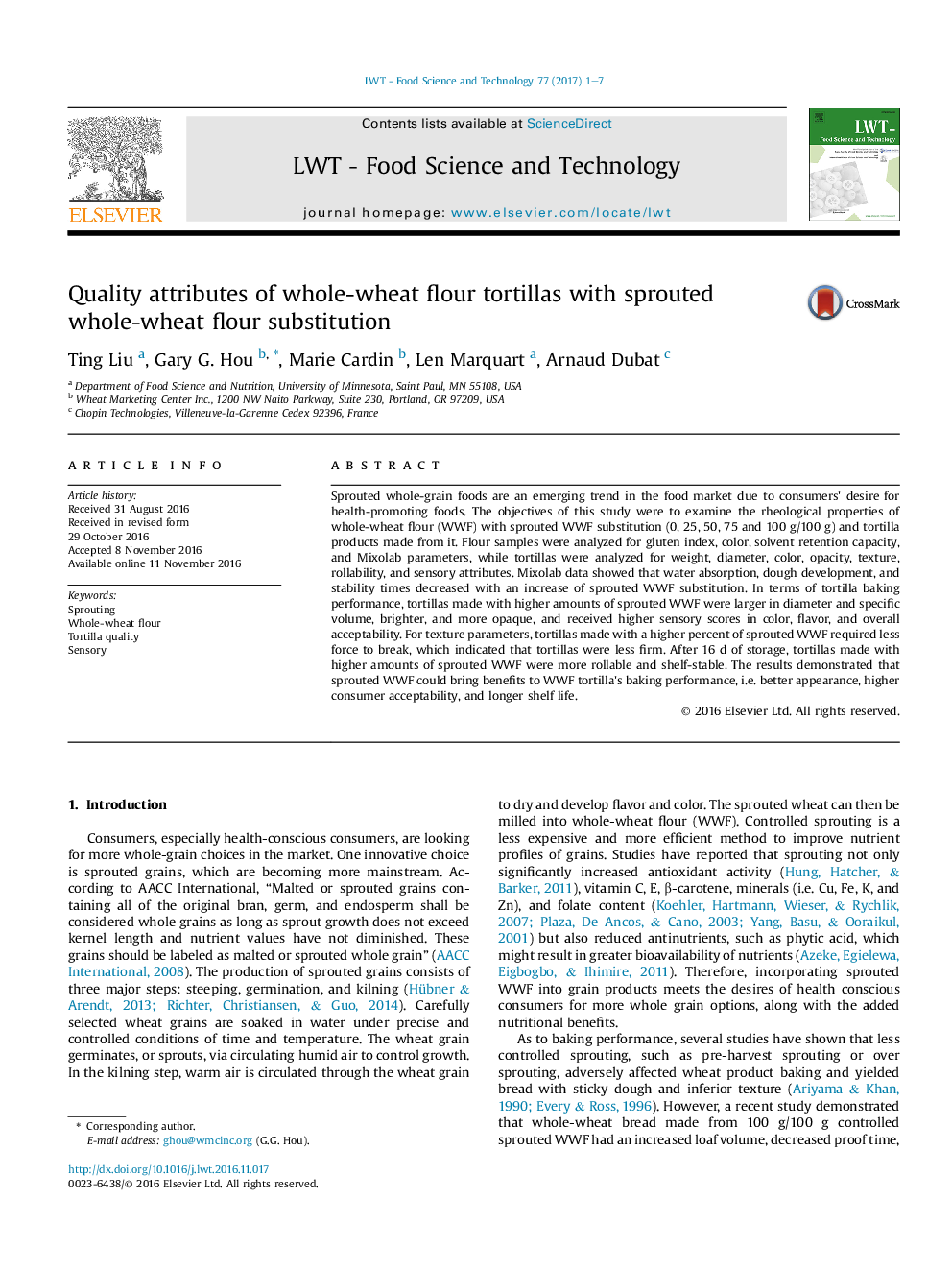| Article ID | Journal | Published Year | Pages | File Type |
|---|---|---|---|---|
| 5768829 | LWT - Food Science and Technology | 2017 | 7 Pages |
â¢Whole-wheat tortillas with sprouted whole-wheat flour had improved product quality.â¢Tortillas made with more sprouted whole-wheat flour received higher sensory scores.â¢Tortillas made with more sprouted whole-wheat flour showed longer shelf life.â¢Whole-wheat flour blends with sprouted WWF substitution had lower gluten strength.
Sprouted whole-grain foods are an emerging trend in the food market due to consumers' desire for health-promoting foods. The objectives of this study were to examine the rheological properties of whole-wheat flour (WWF) with sprouted WWF substitution (0, 25, 50, 75 and 100Â g/100Â g) and tortilla products made from it. Flour samples were analyzed for gluten index, color, solvent retention capacity, and Mixolab parameters, while tortillas were analyzed for weight, diameter, color, opacity, texture, rollability, and sensory attributes. Mixolab data showed that water absorption, dough development, and stability times decreased with an increase of sprouted WWF substitution. In terms of tortilla baking performance, tortillas made with higher amounts of sprouted WWF were larger in diameter and specific volume, brighter, and more opaque, and received higher sensory scores in color, flavor, and overall acceptability. For texture parameters, tortillas made with a higher percent of sprouted WWF required less force to break, which indicated that tortillas were less firm. After 16Â d of storage, tortillas made with higher amounts of sprouted WWF were more rollable and shelf-stable. The results demonstrated that sprouted WWF could bring benefits to WWF tortilla's baking performance, i.e. better appearance, higher consumer acceptability, and longer shelf life.
